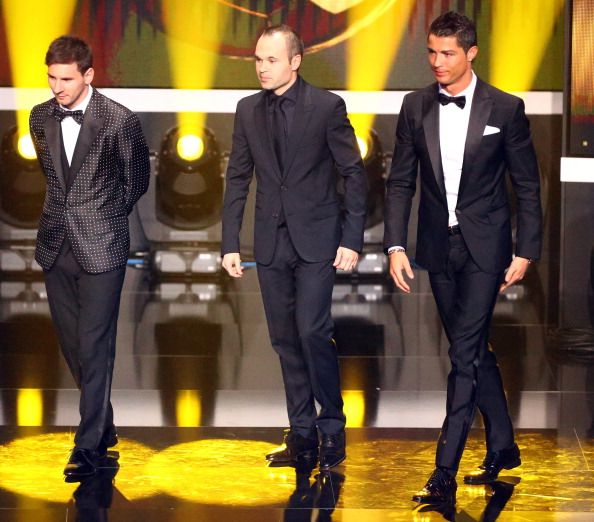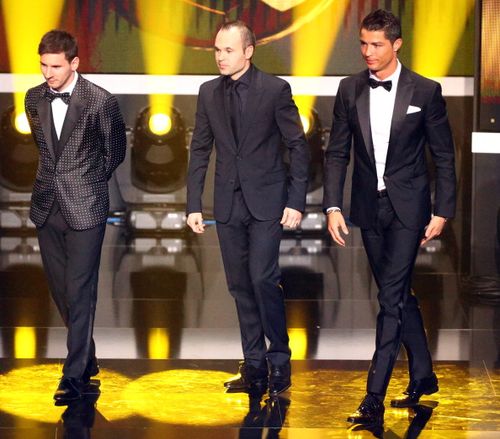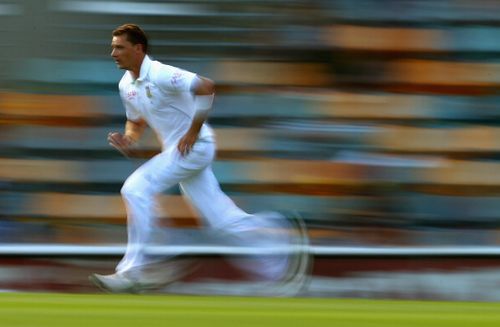
The great inequality - Strikers vs defenders & bowlers vs batsmen

What does it take to win the illustrious Ballon D’or? Goals, Goals and some more goals. What does it take to be the best cricketer in the world? Runs, runs and lots of runs. Though credibility of goals and runs only winning a trophy for the team is still questionable, as David Beckham once quoted “Attack gives you glory, Defense wins you titles”. Didn’t we see similar story in this year’s Ballon D’or, where one team’s silverwares were outclassed and outnumbered by an individual parameter in the name of ‘goals’. Not taking anything away from Messi’s talent, I am here to showcase how the sport is getting moving away from being a team game to an individual game. Here, football and cricket have been taken as reference sports.
Starting with football, if you look at the list of Ballon D’or winners of last 10 years, you would find a continued presence of forwards in the list. Out of the last 12 occasions since 2001, 10 times this prestigious award has been bagged by a player who plays in advanced positions. Only 2 exceptions that we can find in the list are Pavel Nedved(2003) and Fabio Cannavaro(2006). Another fact about this list is that only 3 times goal keepers have featured in top three of this ‘who is the best’ list, Oliver Kahn (2001,2002) and Gianluigi Buffon(2006). Among the defenders, except Fabio Cannavaro, only Pablo Maldini could make it to the list back in 2003.

Same goes for cricket’s ICC awards which were initiated back in 2004. Mitchell Johnson is the only specialist bowler to have won “the cricketer of the year” award back in 2009, considering Andrew Flintoff as an all-rounder who went on to win the same award in 2005 along with Jacques Kallis. We also have to consider that for cricket, there are specialized categories for all 3 formats of the game viz. One Dayers, Tests and T20s. In all 3 formats, the awards have been captured by the ones who were good with the bat rather than the ball.
The question is that if these are the team games, then why do we have such discrimination in appreciation of talent? Football is basically about attacking and defending, and similarly, cricket is about bowling and batting. You have to excel in all these departments to win a game and hence, a silverware. That’s the simplest explanation, but why is it the case most of the times that some sets of skills and abilities are termed superior to the others, despite all being equally important in the scheme of things?
Someone would argue that it’s goals and runs that win you the matches but what about the line of defence that work relentlessly to save your team when it’s most needed, or the bowlers who relentlessly work hard to get those all-important wickets? In people’s opinion, goals are measurable whereas “defending” can’t be quantified and hence goes unnoticed most of the times in football. In cricket, we have runs and wickets, both measurable quantities, but what about the runs that are being saved by skilful bowling and athletic fielding?
It’s the true nature of the world that the mistakes of defenders, goalkeepers, bowlers and fielders are highlighted more than the deficiency of forward players (read strikers and batsmen). How many times we notice that a goalkeeper’s single mistake makes it to the front page of newspapers, whereas a miss from the striker gets mentioned in between the columns in relatively smaller font. Same goes for cricket where bowlers, and not the batsmen, are perceived as punching bags, as they would be the ones who would be blamed for a defeat.
The idea of making these players scapegoats really questions the notion of equality that people hold in their mind. Repugnantly, this inequality is leaving its mark on the minds of NextGen players. If you ask a child who’s engaged in football or cricket about his dream player, the common answers that you would get is Ronaldo, Messi, Kaka, Sachin or Ponting. What are the odds that someone would stand up and say that I wish to be like Pablo Maldini, Fabio Cannavaro or Dale Steyn? Two out of ten, maybe. Let’s hope we change our perception and make sure that we don’t differentiate these players in the process of handing out the mettle of the ‘best’.